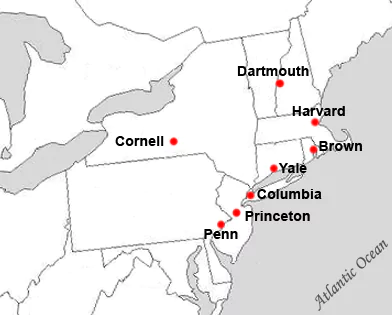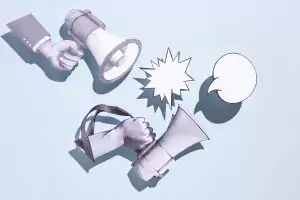 Ivy league schools not only have a lot of rich people attending their institutions, but are also rich in writing advice. After going through tons of websites of ivy league schools, I found the following gems:
Ivy league schools not only have a lot of rich people attending their institutions, but are also rich in writing advice. After going through tons of websites of ivy league schools, I found the following gems:

✅ AI Essay Writer ✅ AI Detector ✅ Plagchecker ✅ Paraphraser
✅ Summarizer ✅ Citation Generator
“Begin writing before you’re ready to write a draft. Even students who know about the importance of revising still sometimes wait to write until they have the text planned out in their heads. Instead, use writing throughout the process of working on a text to discover and deepen your ideas. For instance, as soon as you get the assignment: jot down notes about what interests you and what concerns you have. Write while you’re doing the reading and initial research: how does this reading differ from others you’ve looked at? Let yourself write about your beginning ideas without trying to make it sound like an introduction or a real paper. All of these practices harness the power of writing to discover and will allow you to develop richer, more complex ideas.”
– Yale Writing Center
“It’s helpful to think of the different essay sections as answering a series of questions your reader might ask when encountering your thesis. (Readers should have questions. If they don’t, your thesis is most likely simply an observation of fact, not an arguable claim.)
“What?” The first question to anticipate from a reader is “what”: What evidence shows that the phenomenon described by your thesis is true? To answer the question, you must examine your evidence, thus demonstrating the truth of your claim. This “what” or “demonstration” section comes early in the essay, often directly after the introduction. Since you’re essentially reporting what you’ve observed, this is the part you might have most to say about when you first start writing. But be forewarned: it shouldn’t take up much more than a third (often much less) of your finished essay. If it does, the essay will lack balance and may read as mere summary or description.
“How?” A reader will also want to know whether the claims of the thesis are true in all cases. The corresponding question is “how”: How does the thesis stand up to the challenge of a counterargument? How does the introduction of new material—a new way of looking at the evidence, another set of sources—affect the claims you’re making? Typically, an essay will include at least one “how” section. (Call it “complication” since you’re responding to a reader’s complicating questions.) This section usually comes after the “what,” but keep in mind that an essay may complicate its argument several times depending on its length, and that counterargument alone may appear almost anywhere in an essay.
“Why?” Your reader will also want to know what’s at stake in your claim: Why does your interpretation of a phenomenon matter to anyone beside you? This question addresses the larger implications of your thesis. It allows your readers to understand your essay within a larger context. In answering “why”, your essay explains its own significance. Although you might gesture at this question in your introduction, the fullest answer to it properly belongs at your essay’s end. If you leave it out, your readers will experience your essay as unfinished—or, worse, as pointless or insular.”
– Harvard Writing Center
“During your studies, it is likely you will have the opportunity to write about topics that inspire or infuriate you. Regardless of your passion for a topic, academic audiences prefer clear, precise, and neutral descriptions to emotional or moralistic language. For example:
Education is the single most important factor in career success.
This is a statement that an overwhelming majority of people would agree with, but saying that education is the single most important factor tells readers more about your response to education than about education’s real role in having a successful career. When academic readers see this, it leads them to believe that you cannot help imposing your attitudes on a subject. A more neutral and persuasive way of writing would be:
Education is one important factor in career success.
Don’t be extreme. Academic readers are often suspicious of superlative claims. These are statements that begin with “the most” or “the least” or end with “–est,” and are applied to all situations. You can make it less extreme by narrowing the situations in which the statement is true. For example, instead of writing:
New Horizons is the fastest spacecraft ever built.
It would be more restrained (and accurate) to write:
As of 2007, New Horizons is the fastest spacecraft ever built.
You can also quantify the information, rather than using a superlative:
New Horizons is traveling at 16.21 kilometers per second.”
– Purdue University Online Writing Lab
Follow us on Reddit for more insights and updates.




Comments (0)
Welcome to A*Help comments!
We’re all about debate and discussion at A*Help.
We value the diverse opinions of users, so you may find points of view that you don’t agree with. And that’s cool. However, there are certain things we’re not OK with: attempts to manipulate our data in any way, for example, or the posting of discriminative, offensive, hateful, or disparaging material.